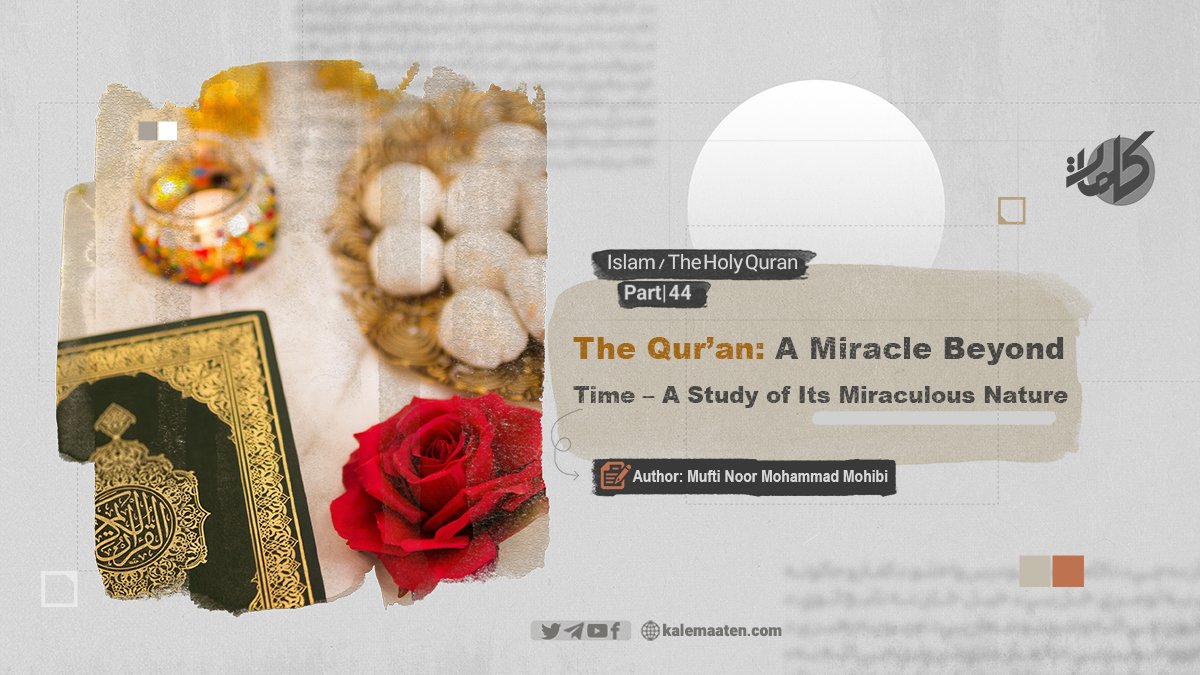Author: Mufti Noor Mohammad Mohibi
The Quran: A Miracle Beyond Time- A Study of Its Miraculous Nature (Part 44)
Scientific Study of the Fetus and Psychological Processes
Understanding the biological and psychological processes of the fetus during pregnancy is one of the essential topics in medical science and developmental psychology.
Recent scientific findings show that the fetus is a living and active being that, in addition to physiological growth, possesses neural reactions, early learning abilities, and psychological responses to environmental stimuli.
This reality reflects the profound wisdom and precise coordination of biological and psychological systems within the human body.
Historical Perspective and Evolution in Understanding the Fetus
In ancient medicine, the fetus was viewed as a primitive structure with minimal life — a “sphere” or “lump” that grew merely through nourishment and environmental conditions, and its movements were considered involuntary responses to stimuli.
However, advances in non-invasive imaging technologies — such as 3D and 4D ultrasound, fetal MRI, and brain activity monitoring technologies (like fMRI and EEG in the womb) — have enabled the study of the precise functioning of the fetal brain and nervous system.
Through these technologies, scientists have identified complex processes such as learning, responses to auditory stimuli, and the influence of maternal emotional states on the fetus.
Physiological and Neural Reactions of the Fetus
Controlled studies have shown that, from the middle weeks of pregnancy, the fetus exhibits measurable responses to environmental stimuli. For example:
-
Conditioned reflex: In an experiment, mothers who smoked during the sixth month of pregnancy showed a significant increase in fetal heartbeat when exposed to cigarette smoke — indicating fetal learning and neural response.
-
Reaction to maternal stress: Maternal stress and negative emotions (such as anger and anxiety) increase stress hormones like cortisol in the mother’s blood. These compounds cross the placenta and affect the regulation of the fetal central nervous system, leading to cardiovascular and motor disturbances in the fetus.
Psychological Bond Between Mother and Fetus and Its Effect on Emotional Development
Developmental psychology has shown that the emotional and psychological bond between mother and fetus plays a vital role in the mental and emotional health of the child after birth:
-
Maternal affection toward pregnancy: When a mother accepts and loves her pregnancy, positive hormonal and psychological signals are transmitted to the fetus, promoting calmness and better nervous system development. Gentle fetal movements in the womb are responses to these emotions.
-
Unwanted pregnancy and emotional neglect: When the mother is indifferent or opposed to her pregnancy, the lack of emotional connection creates anxiety-inducing reactions in the fetus, which may manifest later as behavioral disorders, anxiety, and reduced physical growth. After birth, such children may show feeding difficulties or seek alternative sources of comfort.
Influence of Maternal Behavior and Environment on the Fetus
Maternal sleep patterns and daily behaviors significantly affect the fetus:
Studies show that mothers who stay awake late at night tend to have children with nocturnal wakefulness patterns, and vice versa.
Likewise, emotional and physical support for the mother during pregnancy — especially at the time of childbirth — improves placental and fetal blood circulation, reduces the risk of hypoxia (oxygen deficiency), and enhances the fetus’s psychological and physiological performance.
The Role of Psychological and Environmental Conditions in Facilitating Childbirth and Infant Health
Research in psychosomatic medicine and childbirth shows that the presence of a trusted, supportive person beside the mother during labor reduces anxiety and stress, increases uterine blood flow, and lowers the risk of oxygen deprivation in the fetus.
This plays a vital role in preventing neurological disorders, psychological issues, and cognitive developmental delays after birth.
Conclusion
In summary, contemporary scientific research reveals that the fetus exhibits complex neural, psychological, and physiological activities directly influenced by the mother’s psychological, behavioral, and environmental state.
This dynamic relationship demonstrates a coordinated system in which biological and psychological factors interact to ensure the child’s optimal health and development.
Recognizing these realities is crucial for prenatal care and reproductive psychology education, as ignoring them can have serious consequences for future generations. [1]
Here is where Allah, Glorious and Exalted, says: «وَفِیٓ أَنفُسِكُمۡ أَفَلَا تُبصِرُونَ» Translation: “And in your own selves (are signs and clear evidence for recognizing Allah’s existence and power); do you not then see?” [2]
Continues…
Previous Part/ Next Part
References:
[1] Adh-Dhariyat: 21
[2] Summarized from Mawsu‘at al-I‘jaz al-‘Ilmi fi al-Qur’an wal-Sunnah, Vol. 1, pp. 98–101.



